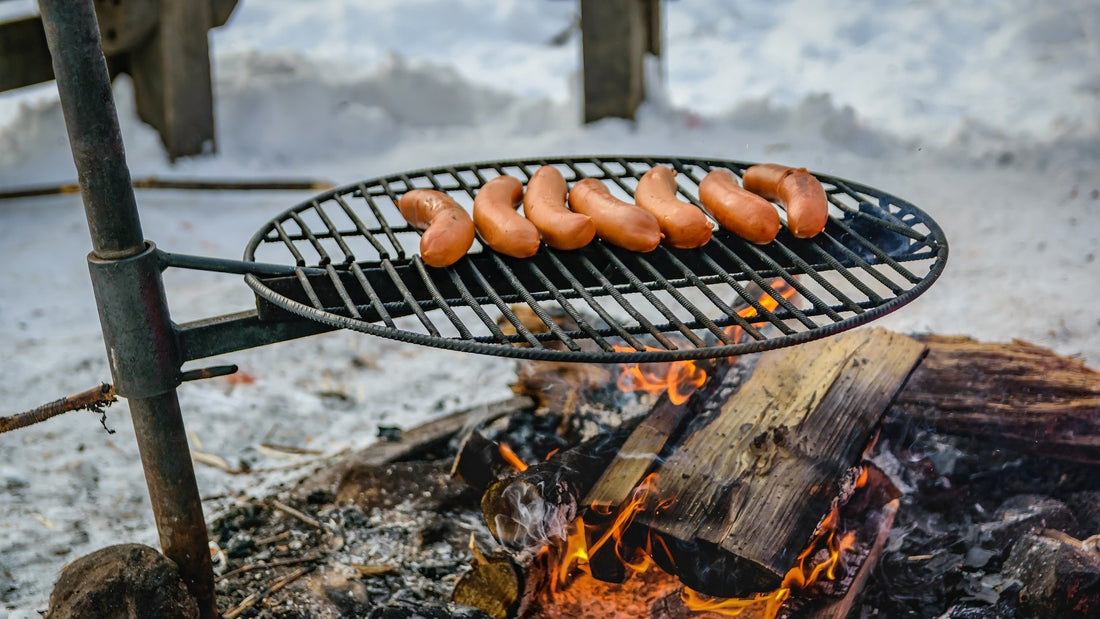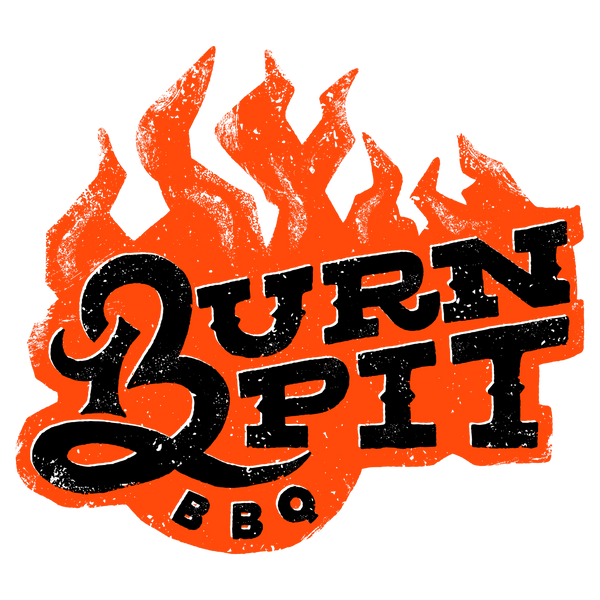
Winter Grill Season Prep
Share

It happened today at my house….it started snowing. The BBQ life doesn’t stop in the winter, it just takes a little more preparing to get it done. Here are some cold weather grilling tips for this upcoming winter grilling & BBQ season!
Plan to work a little harder to keep the heat up.
For outdoor entertaining, plan on slightly longer grilling times in cold temperatures, says Cole Hansen, corporate chef with Johnsonville Sausage in Wisconsin. You’ll need to use more charcoal than usual when it’s cool outside, and also be sure to preheat gas grills in advance to the grates will become hot. propane doesn’t burn so efficiently in cold temperatures, and food also takes longer to cook, so be prepared to use more fuel than you do when the temperature is higher.
Now is a good time to stock up on charcoal and propane, Hansen adds, as stores don’t stock as much of them in colder months.
Invest in Tech
When it’s freezing out, you want to spend as little time in the cold as possible. So rather than huddling over the burning coals, invest in a grilling thermometer and app that monitors the temperature of your food while you sit warm and toasty indoors. Insert the probe into your food, then wait for your smartphone app to alert you that it’s reached the correct temperature—no more prodding and turning to see if your burgers are cooked.
Take a look at this guide to high-tech grilling tools to make your winter grilling more efficient.
How to Winterize Your Grill
When using your grill in the winter, there are a few things you should keep in mind to keep it functioning at its best. The main thing is to keep it cleaned and oiled. You can use vegetable or canola oil to keep the grates lubricated throughout cold weather, similar to how you’d maintain a cast iron pan. If you live in an area with snow and ice and are using salt on your deck or patio, be careful to not let it touch your grill as salt can damage the metal. And finally, it goes without saying that you should keep your grill under a cover to prevent rust, adds Manion.
Practice safety precautions.
Of course, it’s key to keep safety in mind whenever you’re grilling, but especially in colder temperatures. Fires involving grills cause an average of $149 million in property damage annually, according to a report from the National Fire Protection Association. It may be tempting to move your grill into the garage when it’s chilly or snowing, but don’t do it—even if the garage door is open. Gas grills can produce carbon monoxide, the odorless gas that can be deadly for both people and pets, so this is highly dangerous, says Sharon Cooksey, a fire safety educator with Kidde. You should always keep grills at least 10 feet from your home and keep at 3-foot safety zone around the grilling area to keep guests and pets safe. Always keep a fire extinguisher within easy reach, as well, for safety.
If you enjoyed this post or found it helpful, we’d be very grateful if you’d help it spread by emailing it to a friend or sharing it on Twitter or Facebook. Thank you!
